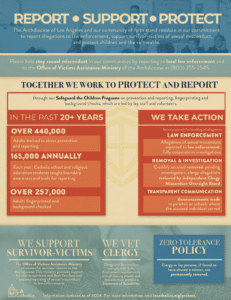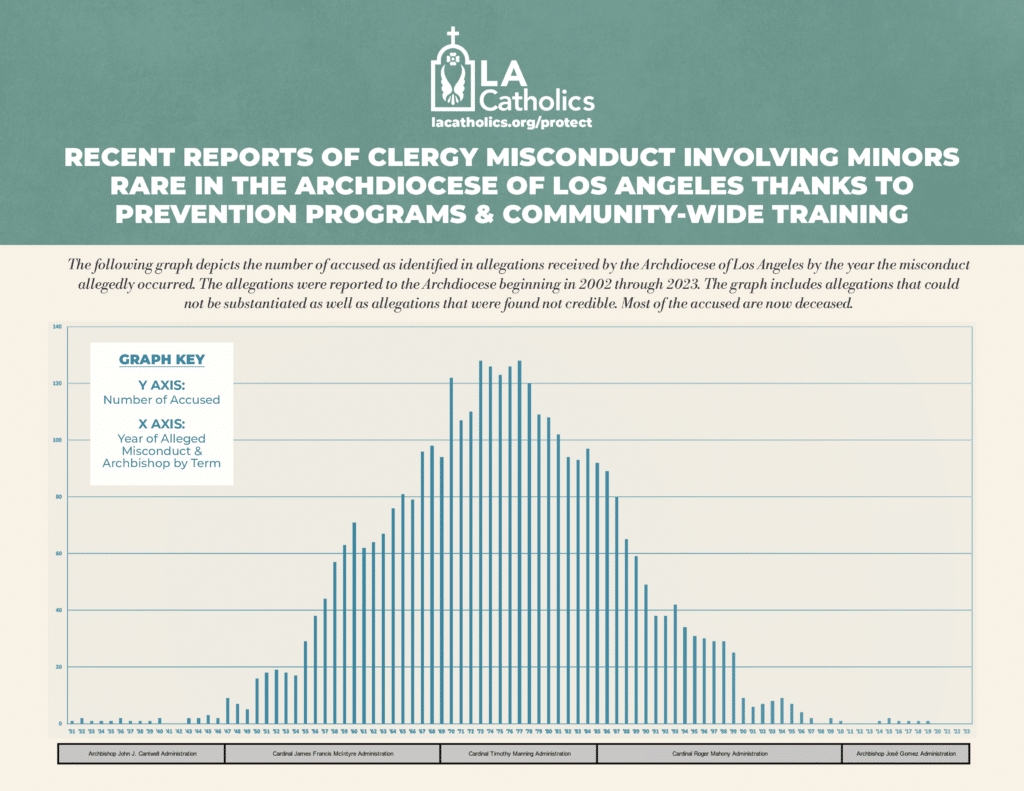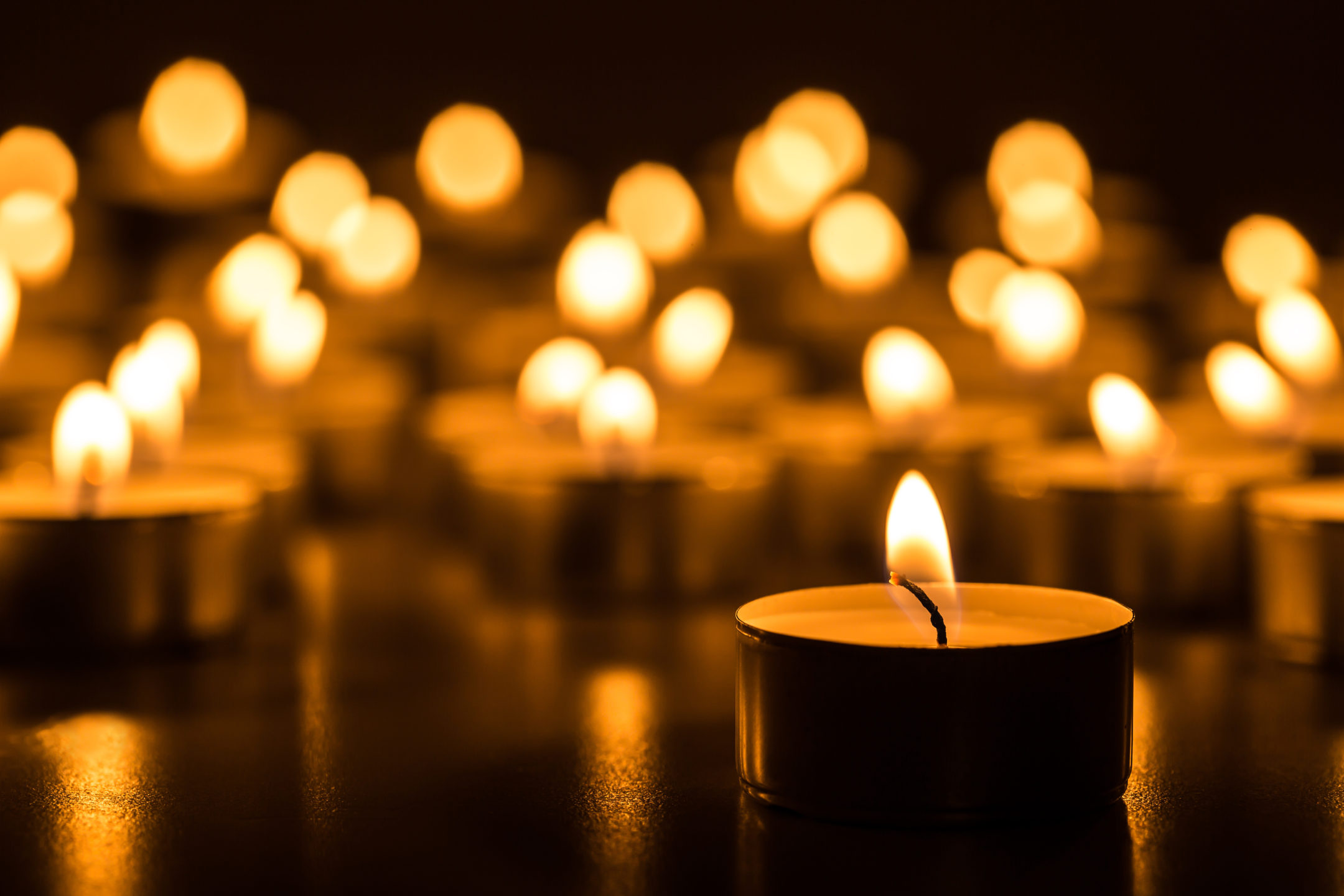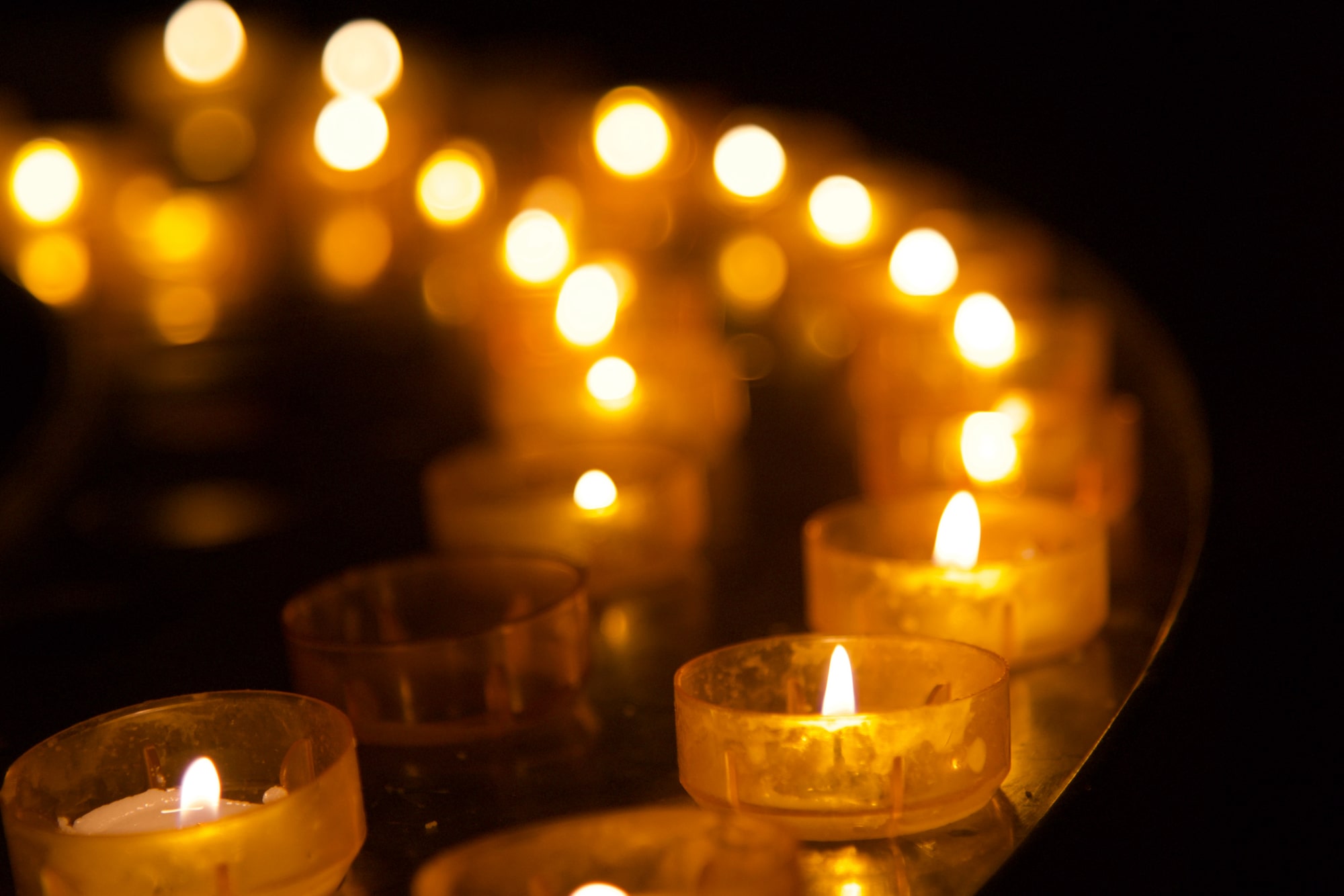AB 218 Civil Litigation and Settlement Questions and Answers
 Click here to read in Spanish / Haga clic aquí para leer en español
Click here to read in Spanish / Haga clic aquí para leer en español
California State Assembly Bill 218 (AB 218), which was passed in 2019, lifted the statute of limitations for a second time in California allowing civil claims during a three-year window from 2020-2022 by adults who were abused as minors. As with the previous lifting of the statute in 2003, the Archdiocese of Los Angeles worked with plaintiffs’ attorneys to settle AB 218 claims to provide survivor-victims with timely and just compensation while allowing parishes, schools and other ministries in the Archdiocese to continue to minister to the faithful and serve the vulnerable and those in need.
Nothing can take away the hurt and pain caused by abuse and our failures to understand and address the issue in the past, but the dedicated efforts of all in our Archdiocese who have taken part in our Safeguard programs since 2002 and ensured reporting of suspected abuse, as well as our Zero Tolerance policy, have helped to ensure that credible cases of misconduct are now rare. No one found to have harmed a minor is serving in ministry in the Archdiocese of Los Angeles. The Archdiocese remains resolute to continue our efforts to help survivor-victims find healing and to ensure that this tragedy never happens again.
A message from Archbishop José H. Gomez regarding the AB 218 global settlement can be found here.
What follows are answers to general questions regarding the AB 218 litigation and the recent settlement, as well as information on the ongoing efforts by the Archdiocese to support survivor-victims and prevent abuse.
Q: How has the Archdiocese of Los Angeles addressed the claims brought forward due to the lifting of the statute of limitations in 2003 and under AB 218?
A: The lifting of the statute of limitations in 2003 for one year resulted in 553 claims against the Archdiocese. The Archdiocese settled those claims in 2007 as part of a global settlement. The Archdiocese funded the settlement, in part, through then-existing insurance coverage that it had to relinquish for these types of claims in the future. The Archdiocese funded the balance of its part of the settlements from Archdiocesan resources by selling non-essential properties, including the building utilized as the administrative office for the Archdiocese, and by cutting personnel and services offered by the central offices. Religious orders and other named defendants also participated in the funding of the settlement.
The enactment of California Assembly Bill AB 218 lifted the statute of limitations again from 2020-2022 and resulted in approximately 4000 claims of childhood sexual abuse against Catholic dioceses in California. The Archdiocese of Los Angeles, the largest in California, was named in approximately 1900 such claims. As it did before, the Archdiocese has worked to resolve these claims in order to fairly compensate and support survivor-victims in their healing journey while allowing parishes, schools and ministries to continue to serve the communities of the Archdiocese through education and social service programs.
On October 16, 2024, the Archdiocese and the Plaintiffs’ Liaison Committee announced that an agreement in principle had been reached through mediation that would lead to the settlement of 1353 claims involving the Archdiocese in the coordinated proceedings for $880 million. This is in addition to claims the Archdiocese settled with individual plaintiffs aver the past 10 months.
Q: How will the Archdiocese pay for a settlement?
A: As in the previous global settlement, the Administrative Office of the Archdiocese, will take primary financial responsibility for the funding and financial impact of this settlement. Insurance coverage was relinquished as a condition of payment for the previous global settlement and thus is not available for this settlement. The administrative office will fund the settlement using accumulated reserves and investment holdings, bank financing and other Archdiocesan assets, in addition to payments by certain religious orders and others named in the litigation.
As in the 2007 settlement, certain religious orders and other co-defendants named in the litigation also will participate in funding the settlement.
Designated contributions to parishes and to collections and campaigns, such as Together in Mission, Catholic Education Foundation (CEF) and Called to Renew, will not be used for the litigation settlement. There will need to be an overall evaluation of all programs and ministries of the Archdiocese to be able to allocate funds responsibly and appropriately. The priority will be to use funds and resources directly available to the administrative office of the Archdiocese and through bank financing and from the sale or securitization of certain Archdiocesan properties and assets, including property that is not currently being utilized for ministries, schools or other Archdiocesan efforts.
As a result, some programs for parishes, schools and ministries financially supported by the administrative office will be affected. Archdiocesan representatives will be working with parishes and schools and other ministries to address the financial needs of those programs.
All decisions will be made after consultation and discernment with the goal of not only addressing current financial needs, but also in preparing for future financial necessities in order to best serve our faithful and the communities the Archdiocese supports now and in the future.
Q: How will the settlement funds be allocated?
A: The Archdiocese is not responsible for the allocation of the settlement funds among the claimants. The allocation will be done in a separate process by legal counsel for all plaintiffs. It will not involve the Archdiocese, as in the 2007 settlement.
Q: Why didn’t the Archdiocese file for bankruptcy?
A: Bankruptcy would have been a much longer process for survivor-victims to receive compensation for their claims, and the enormous fees and costs of a bankruptcy would limit the amount available to pay victims, bankruptcy further could directly, and possibly severely impact parishes and schools.
As in the previous opening of the statute of limitations, the Archdiocese continues to be committed to supporting survivor-victims and worked with plaintiffs’ attorneys through mediation to reach an agreement that provides survivor-victims timely and just compensation while also allowing parishes, schools and vital ministries to serve our communities and especially those most in need.
Q: What are the statistics of the civil claims against the Archdiocese involving clergy?
A: The Archdiocese has compiled all the claims involving clergy from both openings of the statute of limitations, those reported directly to the Archdiocese since 2002, and those presented under the Independent Compensation Program for Survivor-Victims of Sexual Abuse of Minors by Priests (ICP). From the information received, most cases involve clergy who have died or are no longer in ministry, with the alleged abuse having occurred in the 1970s and earlier.
The following graph illustrates the number of cases naming the Archdiocese and, to the extent identified by the claimant, when the alleged abuse occurred.
Thanks to the dedicated efforts of our Safeguard the Children Office, Office of Victims Assistance Ministry and all who have participated in the abuse prevention and protection programs, as well as the implementation of the Archdiocese’s Zero Tolerance policy, since 2002, claims of current misconduct by clergy involving minors are now rare. All allegations involving minors have been reported to law enforcement, and no one who has been found to have harmed a minor at any time is authorized to serve in the Archdiocese.

Q: Has the Archdiocese received claims regarding clergy not named in the previous opening of the statute?
A: Yes. Claims that were not reported previously have been presented to the independent Clergy Misconduct Oversight Board. None of the claims involved current minors. The Archdiocese will be providing a full record of all AB 218 claims to law enforcement.
Q: Do the AB 218 claims only involve individual clergy?
A: No. There are some claims involving religious men and women as well as lay people.
In addition, AB 218 includes a provision which allows an individual to make a claim based on a failure to supervise appropriately at a location to protect minors from being abused. Religious orders who operated parishes and schools have, in certain cases, been named based on this provision. Individual members of the order are not responsible in those circumstances.
Q: Have the claims under the AB 218 litigation been investigated?
A: The AB 218 claims have not been investigated by law enforcement since the statute of limitations for criminal prosecution has expired on those claims.
For those cases in which the alleged perpetrator has been identified and currently in ministry, the allegations have been independently investigated and reviewed by the independent Clergy Misconduct Oversight Board (CMOB). The board has determined them to be unsubstantiated based on the information available during the investigation. In those situations where there is no ability to confirm claims of those currently in ministry, there has been an Archdiocesan investigation based on available information.
Q: Has the Archdiocese published a list of accused clergy?
A: The Archdiocese was one of the first Catholic dioceses in the country to release a comprehensive report that included a list of clergy, including bishops, publicly or credibly accused of sexual misconduct with minors. The 2004 Report to the People of God outlined the mistakes made in understanding the extent of the problem, lessons learned, and actions taken to address the abuse crisis. The list of accused clergy in the Report was updated in 2005, 2008 and since 2018 has been updated on a continual basis. The list will be updated next once the information from the resolution of these civil cases under AB 218 is complete.
The Archdiocese also released files of clergy named in the 2007 global settlement. The Archdiocese will supplement the list of released clergy files with information regarding accused clergy not previously included in the 2013 release.
Q: Are there priests in ministry who have been determined to have abused minors? A: No. No one is allowed to serve in ministry in the Archdiocese of Los Angeles if they are credibly accused of harming a minor. Under the Archdiocese’s Zero Tolerance Policy anyone, clergy or lay person, determined to have harmed a minor is permanently removed from serving in the Archdiocese. There are priests in ministry that have been accused but the allegations were investigated and not substantiated.
Q: Does the Archdiocese provide other support for survivor-victims?
A: The Archdiocese offers pastoral outreach, accompaniment and trauma informed psychological services to survivor-victims through the Office of Victims Assistance Ministry. The Archdiocese has also been providing, on an ongoing basis, pastoral financial settlements directly to survivor-victims, regardless of the openings of the statute and when the abuse may have occurred. Additionally, from 2019 through 2021 the Archdiocese participated in the Independent Compensation Program for Survivor-Victims of Sexual Abuse of Minors by Priests (ICP) for those abused by diocesan clergy as minors to provide survivor-victims who preferred to have an independent settlement program as another means of filing a claim for financial settlement regardless of when the abuse occurred. The program paid a total of $23,970,000 to survivor-victims.
Archdiocesan program and policies to protect children and prevent abuse
Q: How are allegations of recent sexual misconduct of minors handled by the Archdiocese?
A: The Archdiocese follows a strict process when reports of abuse are received:
- The allegation is reported to law enforcement; the Archdiocese cooperates fully with any investigation.
- The accused person is immediately removed from ministry pending the result of the investigation by law enforcement or the Archdiocese.
- Parishes or schools where the accused served are notified.
- In cases where the statute of limitations does not allow for criminal prosecution, retired FBI investigators retained by the Archdiocese investigate the matter and report to the Clergy Misconduct Oversight Board (CMOB) which makes final recommendations to the Archbishop.
- The survivor-victims and their families are offered healing support.
- Anyone found to have abused a minor at any time in their lives, regardless of whether a member of the clergy or a lay person, is not allowed to serve in any capacity under the Archdiocese’s Zero-Tolerance Policy.
Q: What is the Archdiocese doing to prevent abuse in churches and schools?
A: Since 2002, the Office of Safeguard the Children of the Archdiocese has trained more than 440,000 adults, including school parents, staff and volunteers, in the VIRTUS® child abuse prevention and awareness program. More than 250,000 adults have been fingerprinted as part of a program of background checks for Church and school personnel and volunteers. Yearly about 165,000 students in Catholic elementary and high schools, religious education, confirmation, and youth ministry programs in the Archdiocese receive age-appropriate child abuse prevention training. The “Empowering God’s Children” program is designed for kindergarten through 12th grade students. This program helps children and young people understand appropriate and inappropriate boundaries and provides tools to empower them to take action and report inappropriate conduct.
The Archdiocese continues its commitment outlined in the Report to the People of God to be forthcoming and enforce its Zero-Tolerance Policy by reporting abuse; cooperating actively with law enforcement concerning any abuse and misconduct with minors or adults; removing anyone who is found to have abused a minor from ministry; making public announcements about any removals from ministry; expanding education and training of seminarians; continuing and expanding protection and prevention programs; assuring that all matters are reviewed and addressed by Clergy Misconduct Oversight Board (CMOB); and most importantly by supporting survivor-victims and their families.
The Archdiocese also has a toll-free number (800) 355-2545 to facilitate the confidential reporting of allegations of sexual abuse by Church personnel. For more information regarding the programs and policies of the Archdiocese, visit the Protecting Children page of the Archdiocesan website at lacatholics.org/protect.


